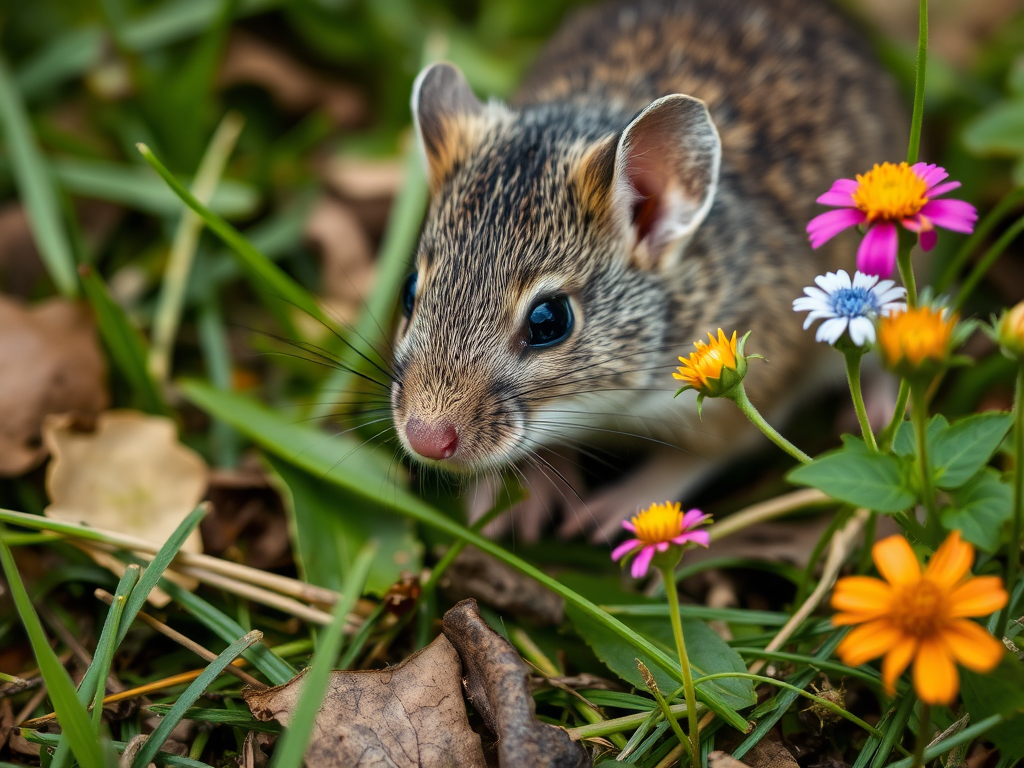Mice are fascinating creatures, often underestimated in their complexity. Their survival depends heavily on their sensory perceptions, particularly their acute sense of smell. Unlike humans, who might be unaffected by certain scents, mice can detect odors that reveal essential information about their surroundings. This remarkable ability influences everything from their feeding habits to their social interactions. As we explore the various reasons why mice avoid particular smells, we will uncover layers of behavioral adaptations shaped by evolution. Understanding these nuances can significantly enhance our approach to managing mouse populations in our environments.
The Anatomy of a Mouse’s Olfactory System

The olfactory system in mice is intricately designed to maximize their sensory capabilities. Mice possess an olfactory bulb that is significantly enlarged relative to their brain size compared to humans. This anatomical feature underscores how crucial olfaction is for mice as they navigate through their environment. Their ability to detect a myriad of scents is facilitated by a vast array of olfactory receptors. These receptors interact with odor molecules to send signals to the brain, generating powerful associations with particular smells. Additionally, the vomeronasal organ plays a pivotal role in the detection of pheromones, which are vital for social interactions among mice.
- Olfactory Receptors: Essential for detecting various odor molecules.
- Olfactory Bulb: Processes the signals from the olfactory receptors.
- Vomeronasal Organ: Detects pheromones crucial for reproductive and social behaviors.
Why Mice Avoid Specific Smells

Understanding why mice avoid certain smells is vital to comprehend their behavior. Instinct and evolutionary pressures have honed their olfactory sensitivities, particularly towards scents that pose threats. For instance, various scents released by natural predators trigger immediate fear responses. This instinctual behavior underscores the importance of scent as a warning indicator. In addition, chemical repellents commonly found in household products can deter mice. Strong odors from substances like peppermint and vinegar can create an inhospitable environment for these small animals.
Predator Scents
Predator scents serve as a potent deterrent for mice. The mere detection of these odors can lead to heightened anxiety and a swift change in behavior. Mice possess a finely tuned sensitivity to the scents of their natural enemies, such as cats or foxes. This fear response is immediate; when they catch a whiff, they instinctively flee the area. Studies indicate that even the faintest trace of a predator’s scent can significantly alter a mouse’s movement pattern. This behavioral change can affect their habitat choices and foraging strategies, demonstrating the profound impact of olfactory input on their lives.
Chemical Repellents
Various household chemicals can create an unwelcoming environment for mice. Scents like vinegar, ammonia, and essential oils, particularly peppermint, have proven to be effective repellents. These strong odors can cause discomfort for mice, leading them to avoid areas where these scents are prevalent. This avoidance behavior can reduce the chances of infestations in human dwellings. This knowledge allows homeowners to utilize natural or chemical deterrents without harming the animals. Below is a brief overview of popular repellent scents and their effects on mice:
| Repellent Scent | Effect on Mice |
|---|---|
| Peppermint | Strongly repels and discourages nesting. |
| Vinegar | Creates an uncomfortable area for mice. |
| Ammonia | Causes distress and avoidance behaviors. |
How Smells Impact Mouse Behavior
The sensory perception of smells plays a crucial role in shaping mouse behavior and habitats. The avoidance of specific odors drives many aspects of their daily lives, including foraging and social interactions. Mice often change their routes or foraging strategies in response to unpleasant smells, demonstrating adaptability in their behavior. Additionally, pheromones, which are chemical signals used for communication, play a significant role in social interactions among mice. When confronted with unfamiliar or threatening odors, their social dynamics can shift dramatically. This emphasizes the importance of olfactory communication in their survival.
The complexity of mouse behavior extends into their social structures. Pheromones are instrumental in conveying a wealth of information, from territorial boundaries to mating readiness. If a mouse detects a smell that signals danger or potential threats, it may reconsider its social strategies. Sometimes, odors that indicate a rival mouse’s presence lead to avoidance rather than confrontation. These adaptations illustrate the dynamic interplay between olfactory cues and social behavior. By understanding these elements, we can gain insights into how smells influence not just survival but also social cohesion among mice.
Conclusion
Understanding why mice avoid certain smells offers valuable insights into their sensory world and behavioral adaptations. The evolution of their olfactory system equips them to navigate a dangerous environment and make informed decisions, significantly impacting their survival. Recognizing these olfactory cues can lead to effective strategies for managing mouse populations, ensuring both safe living conditions for humans and sparing the lives of these intriguing creatures. This layer of complexity highlights just how significant the sense of smell is in the lives of mice. As we continue to explore animal behavior, it’s crucial to acknowledge the vital role that sensory perception plays in shaping interactions within ecosystems.
Frequently Asked Questions
- What scents are most repulsive to mice? Strong scents such as peppermint, vinegar, and ammonia are known to repel mice.
- How do predator scents affect mouse behavior? Scents from predators trigger a fear response in mice, causing them to avoid the area where the smell is detected.
- Can mice recognize familiar smells? Yes, mice have a highly developed sense of smell that allows them to recognize and remember familiar scents, which can influence their social and foraging behavior.
- Are there any smells that attract mice? Mice are often attracted to food smells, particularly those that are sweet or fatty.



